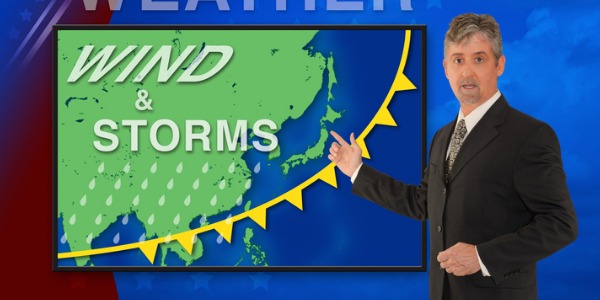What is a Meteorologist?
A meteorologist is a specialized scientist who focuses on some aspect of the atmosphere, and who uses scientific principles to observe, understand and be able to explain or forecast how the earth's atmosphere affects the earth and everyone on it.
What does a Meteorologist do?

There are several specialized areas of study that meteorologist can be involved in:
Climate Meteorologists/Climatologists
- look at long term weather data and patterns from hundreds to millions of years ago in order to help predict future climate trends
Atmospheric Meteorologist
- study the atmosphere's motions and physical characteristics and how they could, or do affect the environment. They also apply their research to forestry, agriculture, global warming trends and air pollution control.
Operational Meteorologists
- study wind direction, wind speed, temperature, humidity and air pressure
Forensic Meteorologists
- investigate claims for insurance companies, and will research weather or past weather for a court of law
Broadcast Meteorologists
- interpret and report the weather and weather conditions for television and radio
Consulting Meteorologists
- are hired by large companies for consultation work
Synoptic Meteorologists
- develop new instruments and tools with computers and mathematical methods in order to forecast the weather in a more up to date manner
Physical Meteorologists
- study the physical and chemical properties of the atmosphere, and the transmission of sounds, light and radio waves through the air
Environmental Meteorologists
- study and report on ways to reduce air pollution, and contribute to the study of global warming and ozone depletion
Research Meteorologists
- typically work for different government agencies, the military, NASA, or the National Weather Service
Archive Meteorologists
- research and report on storms of the past
Meteorologists as Teachers / Professors
- share their knowledge as educators at a high school or university level
What is the workplace of a Meteorologist like?
Weather is everywhere, and meteorologists can be found all over the world doing many different jobs. The five main places meteorologists work are for TV/Radio stations, consulting businesses, educational facilities, the military, and the National Oceanic and Atmospheric Administration NOAA).
Frequently Asked Questions
Steps to becoming a Meteorologist
The path to becoming a meteorologist starts with an interest in science; climate and weather; and the atmosphere. It continues with choosing high school courses that support this interest. And it culminates with university education that opens the door to career options.
How long does it take to become a Meteorologist?
How long it takes to become a meteorologist depends on what kind of job you want. There are jobs available for those with only a bachelor's degree (four years), but most high level positions require at least a master's and research positions will require a PhD (another two to four years).
What are Meteorologists like?
Based on our pool of users, meteorologists tend to be predominately investigative people. This finding is not unexpected. These professionals are frequently, if not always, in investigative mode, as they predict weather, scrutinize climate trends, study the atmosphere, and examine its effects on the environment.
Meteorologists work with a two-stage investigative model. First, they identify the initial state of the atmosphere, that is, the temperature, pressure, wind strength and direction, and humidity concentration over a specific area. They continuously make observations using ground-level sensors, satellites, radar, aircraft, and balloons.
Once they know the initial state at every altitude, they make calculations using physics equations relating to friction, atmospheric forces, thermodynamics, radiation, and the force of the Earth’s rotation.
Should I become a Meteorologist?
Meteorologists need a very deep knowledge base on the workings of the physical world, so an innate curiosity and desire to learn is a must. Depending on their specialty, meteorologists may have to work nights and weekends and have strict deadlines to meet. Strong verbal and written communication skills are essential, as meteorologists often have to communicate complicated information in simple ways to non-meteorologists.
Different specializations require different skills and training. A TV weatherperson, for example, would need journalism or media education, while this would be unnecessary for someone in a research position. There are many different meteorology specializations, so if you enjoy the nature of the work it is likely that there is a specialization that works well with your personality.
All meteorologists use sophisticated technology on a daily basis. Depending on your specialization, this might mean launching weather balloons, modeling weather on a computer, or even developing new software. In any case, you should be confident and ideally enjoy working on a computer if you intend to be a meteorologist.
Here are some questions you may want to ask yourself if you are considering a career in meteorology:
Am I curious about the world around me and why it is the way it is? Would I like to work in a field of science that has many important applications in human affairs, such as warning others of hazardous weather or investigating the atmospheric forces that shape our weather and climate? Am I challenged by the idea of applying basic scientific principles to understand the behavior of the atmosphere? Am I intrigued by the concept of using mathematics as a language to describe things that happen in the world around me? Do I enjoy science and math courses? Would I like to work with supercomputers, satellites, and other sophisticated research tools?
Meteorologists are also known as:
Weather Forecaster
Weathercaster
Weatherman